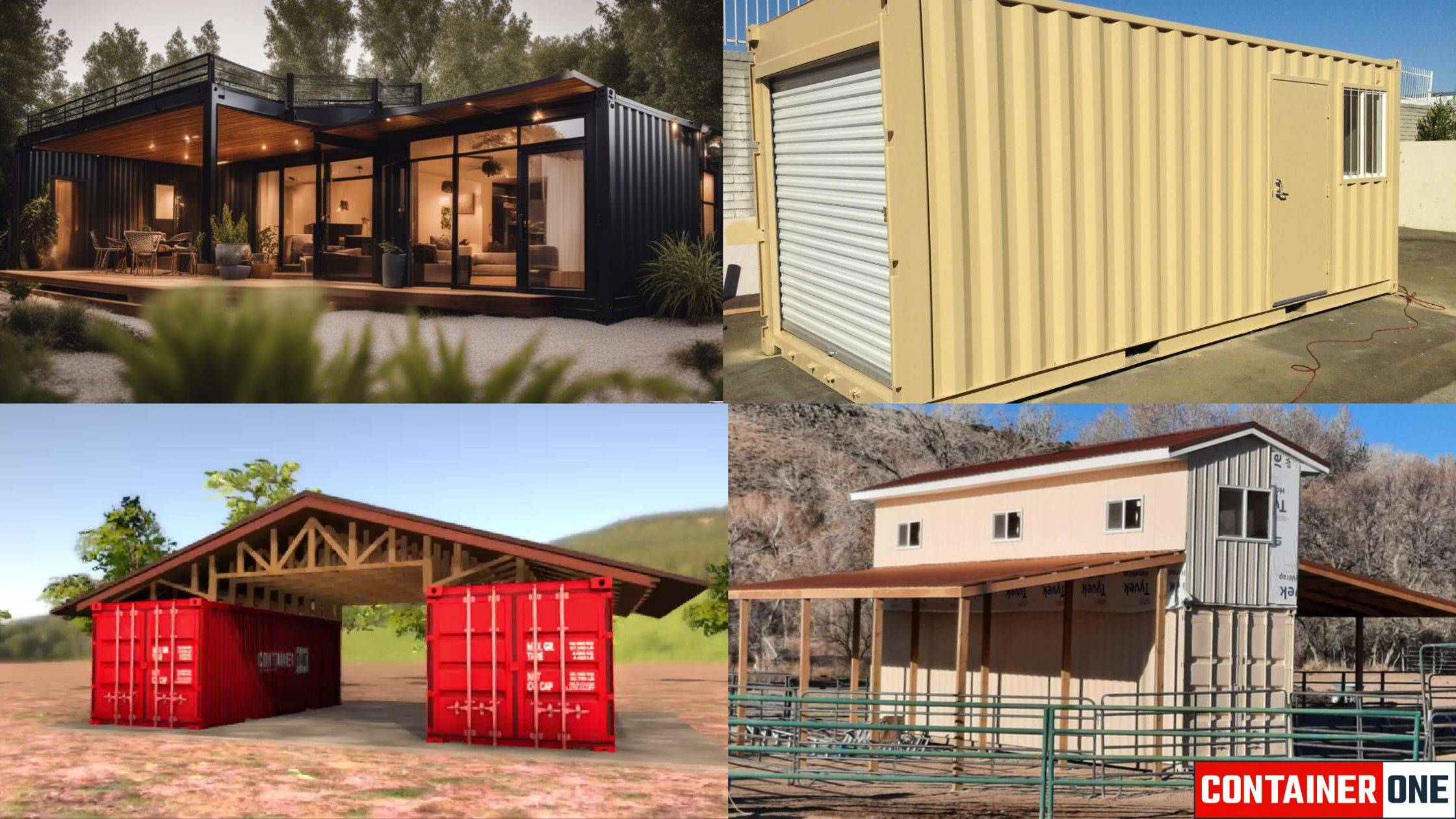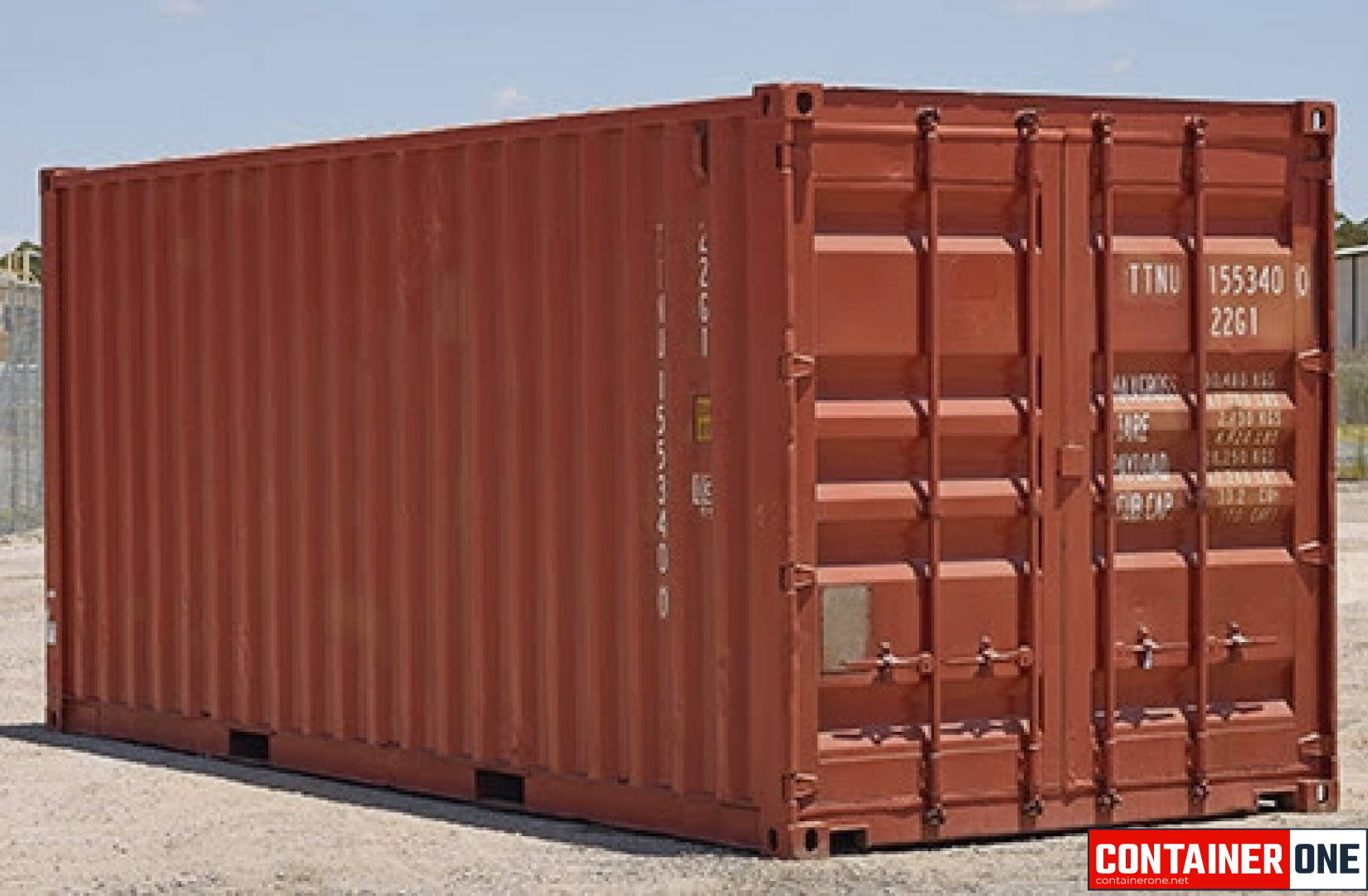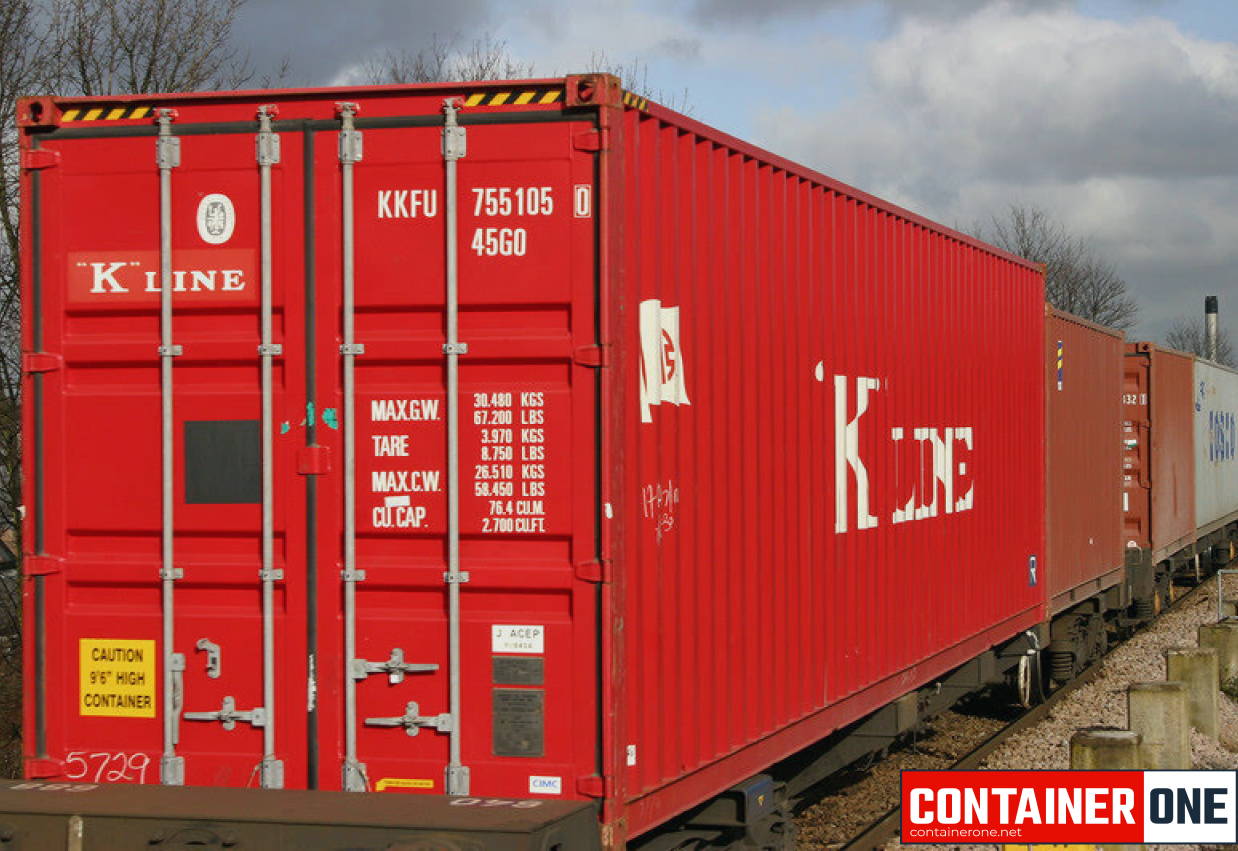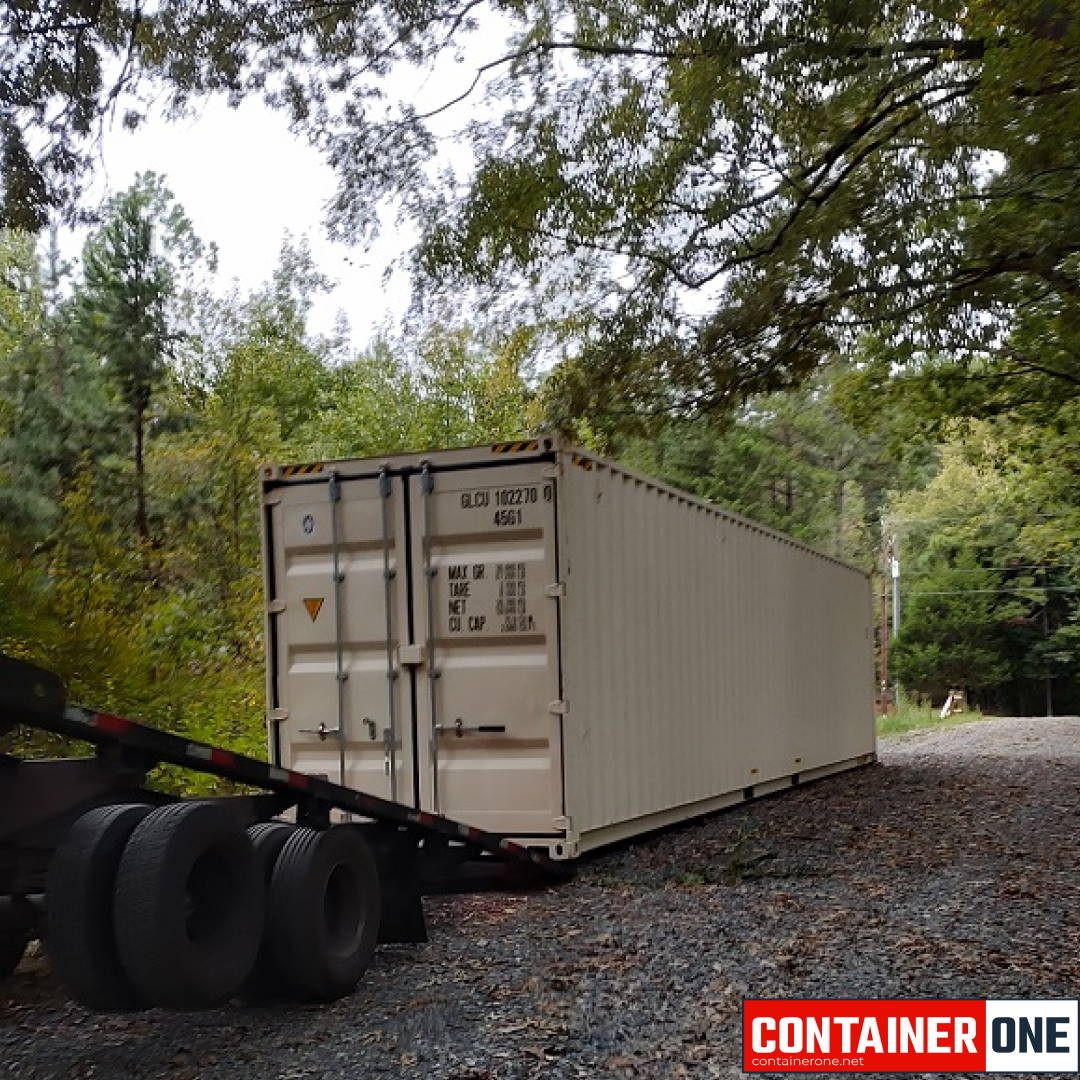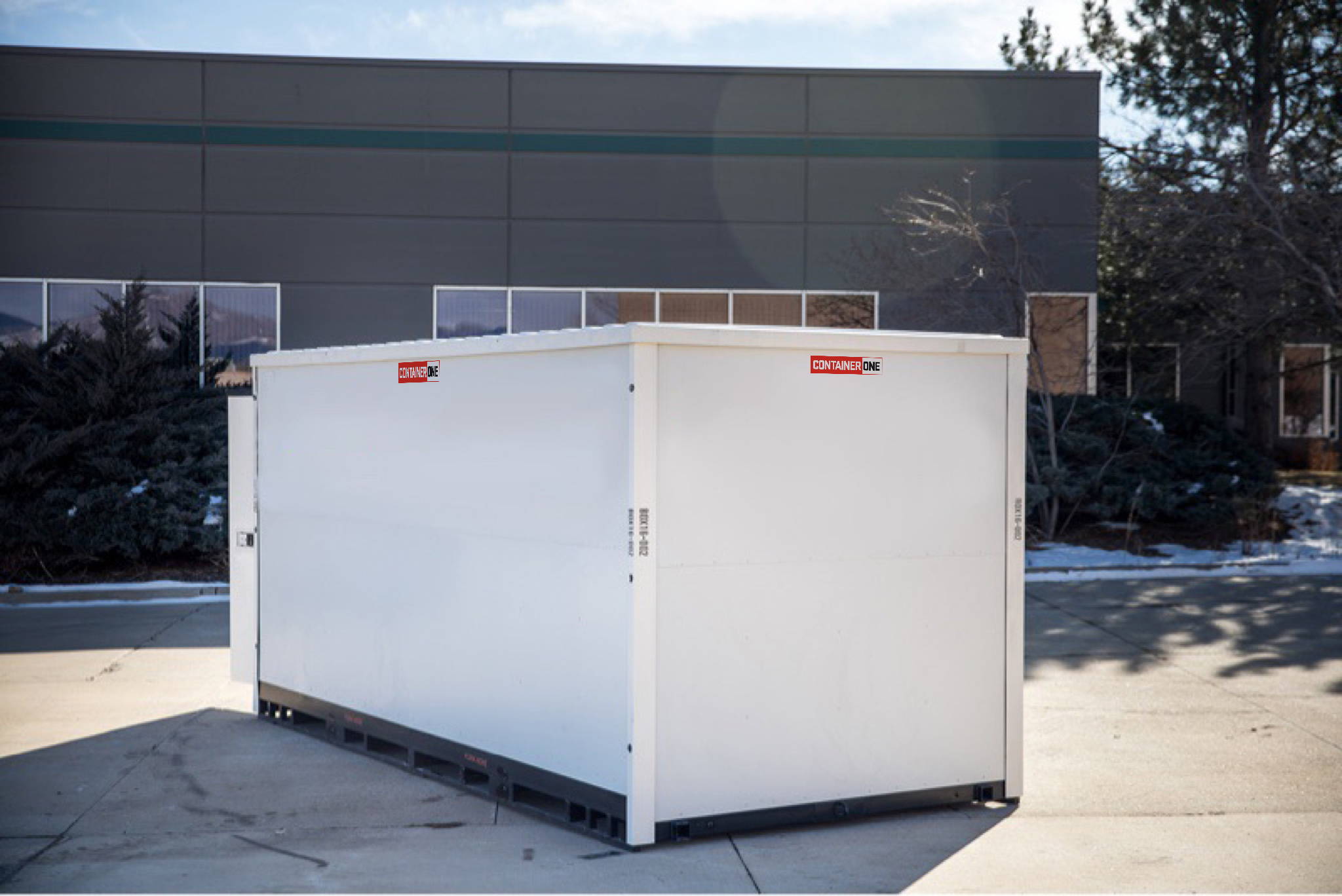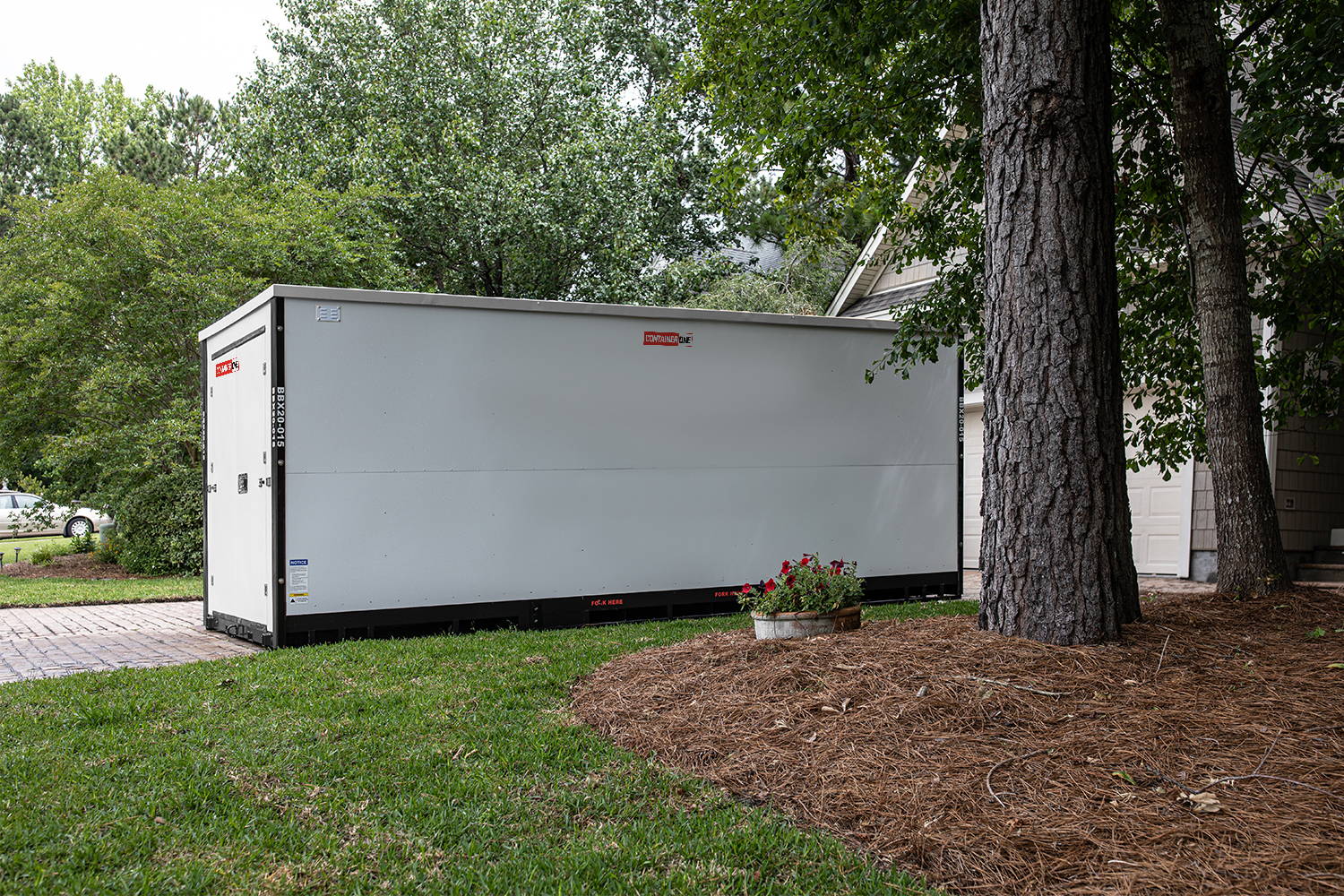Shipping Container Dimensions and Sizes
The most common shipping container sizes are 20 feet or 40 feet long, 8 feet wide, and 8.5 feet or 9.5 feet tall. The taller containers are called High Cubes. In total, shipping container sizes come in lengths of 10 ft, 20 ft, 40 ft or 53 ft. The inside measurements of shipping containers are a bit smaller. See exact shipping container dimensions below:

Last updated: November 2023
Common Shipping Container Sizes Snapshot

20ft Standard Dry (8'6" x 8' x 20')
Weight: 4500 Ibs
Max Gross Weight: 66,139 Ibs
Interior Dimensions
Length: 19' 5"
Width: 7' 8-1/8"
Height 7' 9-5/8"
Door Opening
Width: 7' 8-1/2"
Height 7' 5-3/4"
Thickness
14 Gauge

40ft Standard Dry (8'6" x 8' x 40')
Weight: 8500 Ibs
Max Gross Weight: 66,139 Ibs
Interior Dimensions
Length: 39' 3/8"
Width: 7' 8-1/8"
Height 7' 9-5/8"
Door Opening
Width: 7' 8-1/2"
Height 7' 5-3/4"
Thickness
14 Gauge

40ft High Cube (9'6" x 8' x 40')
Weight: 8750 Ibs
Max Gross Weight: 68,008 Ibs
Interior Dimensions
Length: 39' 4"
Width: 7' 7"
Height 8' 9-5/8"
Door Opening
Width: 7' 8"
Height 8' 5"
Thickness
14 Gauge
Rare Conex Box Container Sizes
Rare conex box shipping container sizes include the 10 ft and 53 ft containers. The secondary market to purchase them is fairly small, making those containers very expensive when they’re available. Customers who want a 10 ft container are better served with an 8 ft or 12 ft portable storage container. And customers seeking large containers will quickly discover that 40 foot High Cubes are significantly more affordable and accessible than 53-footers.
What Materials Are Used To Make Shipping Containers?

Shipping containers are often referred to as Conex boxes or ISO containers. They’re all referring to the same type of steel container used for shipping goods internationally or domestically. These containers are built to last. The primary material used to build a typical ISO shipping container is Cor-ten steel, also known as “weathering steel”. Cor-ten steel is a corrosion resistant steel that is used within many industries where exposed steel is in harsh conditions. They also feature continuously welded steel framing to support an incredible amount of weight.
Here are the dimensions of the materials used to make shipping containers:
Walls: 14-gauge corrugated steel sheets with .075-inch thickness
Framing: 7-gauge tubular steel with 0.187-inch thickness
Floor Structure: 6” steel cross members
Flooring: Purin reinforced 1-⅛” Marine Plywood Floors
How Many Square Feet Are In Shipping Containers?
Deciphering the interior square footage within standard shipping containers clarifies how much floor space you'll have for your projects or storage. As mentioned earlier, the inside dimensions of a shipping container are smaller than the exterior dimensions due to space that the conex box walls and framing take up. Here's the essential square footage info:
10-foot container: 80 square feet on the exterior and about 75 square feet on the interior.
20-foot container: 160 square feet on the exterior and about 150 square feet on the interior.
40-foot container: 320 square feet on the exterior and about 300 square feet on the interior.
40-foot High Cube:320 square feet on the exterior and about 300 square feet on the interior.
How Many Cubic Feet Do Shipping Containers Have?

Buying a shipping container requires understanding the cubic footage of different shipping container sizes. It helps in selecting the right unit for your storage, shipping or building needs. Here's a quick rundown of exterior and interior cubic footage of shipping containers:
10-foot container: 680 cubic feet on the exterior and about 560 cubic feet on the interior.
20-foot container: 1360 cubic feet on the exterior and around 1,172 cubic feet on the interior
40-foot container: 2720 cubic feet on the exterior and about 2,350 cubic feet on the interior.
40-foot High Cube: 3040 cubic feet on the exterior and about 2,694 cubic feet on the interior.
High Cube Containers Vs Standard Shipping Containers

Should I buy standard sized shipping containers or a high cube container?
Shipping container dimensions are fairly simple to understand as the only thing that really changes is the length of the shipping container, or the height if you're looking into high cube containers.
High Cube containers are a foot taller than standard shipping containers at 9.5 feet tall versus 8.5 feet tall.
High Cube containers are our best sellers because many people prefer more head space in container build projects or they need storage space that can be stacked high.
How to Choose the Right Container Size for Your Project
Embarking on a project that involves a shipping container means unlocking endless possibilities, whether for storage, transport, or innovative architecture. Choosing the right size is crucial, and here's how you can navigate this decision.
First, pinpoint your project's specific needs. For straightforward storage or transport, a standard 20-foot container might suffice. They're ideal for storage sheds, cabins, pop-up shops, or a shipping container garage.
However, if you're dreaming bigger—like constructing a container home, a container office, or a spacious art studio—a 40-foot container provides double the space, making it suitable for such ambitious projects. Its ample room is perfect for a chic, modern dwelling or a dynamic work environment.
For projects needing extra height, high-cube containers are perfect. They're a favorite for carports, commercial spaces or tiny homes, offering that much-needed headroom or loft space.
How Much Do Shipping Containers Weigh?

Navigating the world of shipping can be a bit like learning a new language, especially when it comes to understanding all the jargon. Let's break down some of that heavyweight lingo—specifically tare, payload, and gross mass—so you can feel like the captain of your shipping endeavors!
First off, "tare weight" is just a fancy term for how much an empty container weighs.
10-foot shipping containers weigh about 2,200 pounds (1000 kg)
20-foot shipping containers weigh about 4,500 pounds (2,041 kg)
40-foot shipping containers weigh about 8,300 pounds (3,750 kg)
40-foot High Cube containers weigh about 8,800 pounds (4000 kg)
What is the Payload Weight For Conex Shipping Containers

The "payload" is the total weight of the cargo you can safely pack into your container. 40 foot containers can be loaded with up to 63,000 lbs of weight and stacked 10 high. That is why they are so useful for building multi-story homes, apartment buildings and college dorms. Here are the precise payload capacities for every shipping container size.
10-foot shipping containers can safely hold about 20,000 pounds (9,071 kg)
20-foot shipping containers can safely hold about 61,729 pounds (28,000 kg)
40-foot shipping containers can safely hold about 63,053 pounds (28,600 kg)
40-foot High Cube containers can safely hold about 63,053 pounds (28,600 kg)
What Are The Sizes Of Conex Box Shipping Containers For Sale?
At Container One, we sell 3 sizes of conex box shipping containers: 20 foot standard, 40 foot standard, and 40 foot High Cube. 'Foot' refers to the length of the container. Here are the exact dimensions:
20 Ft Shipping Container Dimensions
20 foot Standard Dry shipping containers are some of the most common shipping containers available for purchase. 20 ft shipping containers have a length of 20 feet, a height of 8'6", and a width of 8 feet. Internally, their dimensions are 19'5" long, 7'8" wide, and 7'9" high. Their gross weight is 4,500 lbs. The door opening is 7'8" wide and 7'5" tall. Their square footage is 160 sq ft on the outside and around 150 sq ft on the inside. The cubic footage of storage space in a 20 ft Standard Dry container is approximately 1,360 cubic feet on the exterior. Get an instant quote on 20 ft standard containers.
40 Ft Standard Shipping Container Dimensions
40 foot shipping containers are the most often used as freight shipping containers for big businesses trading overseas. The shipping container dimensions for a 40 ft container are 40 ft long, 8'6" high, and 8 feet wide. Internally, these dimensions are 39" long, 7'8" wide, and 7'9" high. They have a gross weight of 8,500 lbs. The door opening is 7'8" wide and 7'5" tall. Their square footage is 320 sq ft on the outside and 300 sq ft on the inside. The cubic footage of storage space in a 40 ft Standard Dry container is approximately 2,720 cubic feet on the exterior. See 40 ft shipping containers for sale.
40 Ft High Cube Shipping Container Dimensions
40 foot High Cube containers offer higher ceilings and more cubic footage of storage than standard 40 footers. The dimensions for a 40 ft High Cube container are 40 ft long, 9'6" high, and 8 feet wide. Internally, these dimensions are 39" long, 7'8" wide, and 8'9" high. They have a gross weight of 8,750 lbs. The door opening is 7'8" wide and 8'5" tall. Their square footage is 320 sq ft on the outside and around 300 sq ft on the inside. The cubic footage of storage space in a 40 ft High Cube container is approximately 3,040 cubic feet on the exterior. See40 ft High Cube container for sale.
Portable Storage Container Dimensions and Sizes


Container One also sells brand new portable storage containers in sizes of 8 ft, 12 ft, 16 ft and 20 ft that are ideal for self storage, moving or keeping job-site materials safe. 'Foot' refers to the length of the container. Here are the exact dimensions for storage containers:


